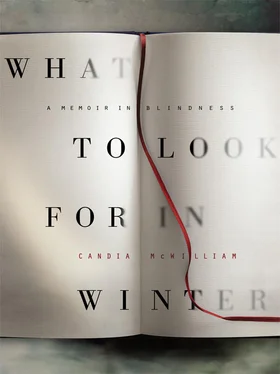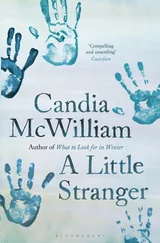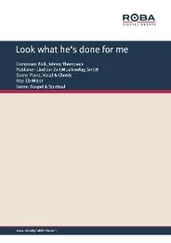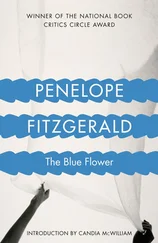I was first approached by a flasher when I was four. Actual manual work and melting in the hand not the mouth followed soon thereafter. There was one try to broach my milk-toothy mouth. I recall the feeling, as of a large eyeball with a thick lid forcing itself past my uvula. I didn’t seem to think this was unusual at the time. Families living many to a room in freezing poverty cuddled together for warmth; there was often a ‘simple’ son, who might wander the town. Having found the means of making a productive sensation, why might he not have taken it into his head to share the feeling? I simply stood aside from myself. I still have some of my milk teeth.
This intervention was exactly the opposite of reading. Reading was safe and something you went into. This invasive unshared business was something you stood aside from. It didn’t go on for long either in fact as an act or as a sequence in my life. Nor was the practitioner even someone whose name I knew, poor boy, trying to find a vessel for his pleasure.
Where was my mother at these times? She was being preyed upon too, by someone certainly less innocent than my poor urban simpleton.
Someone was circling her and smoothing her vanity, seeping into the crevices left by her dearly loved husband’s absence, away with his unsleeping work.
All my life I’ve had words that got stuck in my head as tunes do. When I was three it was San Francisco and Benozzo Gozzoli. I had no idea of the meaning. It was the sound that stuck. During other parts of my childhood, the needle stuck on various phrases or sometimes single words; ‘Pretty ballerina’ bounced in my brain for the obvious reason that I wasn’t. ‘Pink’ chaffinched away in my head for months. Ever since the fire in my Oxford house, the word that has been rolling around behind my eyes is ‘epilimnion’. I even wake up saying it. This may be a bad case of ‘Candia McWilliam’s swallowed the dictionary’, because I’ve only the slightest idea of what it means, which is, I think, the top surface of a large body of water, for example a lake. What I don’t know is how many meniscuses make up an epilimnion. Then other words attached themselves to it and now I’m bothered by the assonant but dead-end statement, ‘we swim the epilimnion’.
It has become impossible to write of my far past without being somewhat open about the present and its tense surface.
A carer brings breakfast to my cousin Audrey in Edinburgh; if it has not arrived by noon she’s fair mad with frustration, diabetes, hunger and very possibly loneliness. It is with grave difficulty that she gets about. Today, when I got up at six and started blindly doing my chores, I realised that I was like this, in inverse, about the arrival of Liv at 9 a.m. Just as Cousin Audrey is hungry for her breakfast, I’m hungry to pour out words and get them down. I have already after only six days become dependent upon the process and the presence of Liv. I no longer pace when dictating but sit slightly behind her to her right and hope that does not make her feel haunted; I’m less shy than I was, and can feel the sentences consequently relaxing. It’s less like doing a reading, and more like having a conversation, where the other person is not gagged but doesn’t talk quite as much as I do. I’m not naturally one for monologue, and was never, even at my most drunk, the life or soul of the party; one of the fears consequent upon my blindness has been that of becoming a big fat bore. The note I most resist in a female voice of any age is the note of complaint. Only French women do it at all attractively, and even then it seems to me too close to cleaving to the privileges of servility and aggression.
Say the present is the epilimnion, then, of this book; as we swim it so we shall feel the changing temperatures of the past rise up, the weed brush our legs; we may or may not sense schools of trout or a biding long-jawed pike. All over this house are pairs of spectacles, many of them purchased for one pound each at a Pound Shop in a subway under Basingstoke. None of these spectacles came with a prescription. I just like to have a pair of specs to hold and fiddle with and put on and wave around as though I were a person who could see. In my old life, before blindness, I had only just started to wear reading glasses, as was normal for my age. Before that, I was always seeing, watching, gorging my eyes.
What is enough to see?
What is enough to look for?
For the last two days, I have been conducting an experiment, and attempting to use my ears to catch secrets and the almost unheard, as, I realise, I used to use my eyes. Of course I’ve always eavesdropped; it’s a form of collecting irresistible to the spy side of being a writer. But I’m trying now to hear and listen supernaturally, around corners, within trees, into birds’ nests, right into the egg within the nest. So far it hasn’t come up to the level my seeing skills were at when they departed. That sounds ungrateful; I’m aware that it will take another fifty-three years to tune my hearing skills up; I’m just a hatching tuning fork, like the one emerging from the lyrebird’s egg drawn by my father larger than life size with his Flo-Master pen on the basement wall in Warriston Crescent after another row with my mother.
So far, my only auditory revelation occurred in a doctor’s waiting room. Unless I’m with Liv or asleep or actually with a doctor, these waiting rooms are where I spend my days. I was in a department of Guy’s Hospital that is a house built upon the place where Keats did his medical training, opposite the Old Operating Theatre whose motto is COMPASSIONE NON MERCEDE, near London Bridge. I heard three pieces of scaffolding being conjoined and the dead sound was exactly that of a wooden xylophone; distance had turned metal to wood.
Occasionally, fashion demands that very pretty people wear spectacles for what is called in the world of magazines a ‘story’. This is the run of editorial pages with some ostensible narrative connection using the same model or group of models. Sometimes film stars wear specs not on account of their trouble with seeing but on account of how they wish to be seen. They may for all we know be short-sighted, but these are specs for being seen in. Today, the left-hand lens has fallen out of my favourite pair of such specs. That’s what my specs are. They are all a put-on.
I trod upon what I thought must be a very thick and large toenail with my bare foot. I felt around and realigned my mind. The only sort of animal whose toenail it could be simply could not have fitted into this flat. I thought directly of our Latvian lodger, who often babysat me. That’s how my mother was able sometimes to leave me, I remembered all at once. I was left with the lodgers. One lodger was a sculptor in clay, his favourite subject crouching beasts, tigers in the main. His glaze of choice was an intense Middle Eastern turquoise. His hands and feet were interesting to me. He was a sweet man. I remember him clearly saying that at least the clay didn’t get under his nails. The nails of his feet and his hands had been pulled out under torture.
Unlike our lodger, my mother’s courtier was a fabulist. I would think this, wouldn’t I, but I feel it was less to my father that she was unfaithful than to the strictures of a certain Edinburgh that just couldn’t take her. If I look at this more closely, I’m aware that there was, together with the kenspeckle, right-and-proper city, a bohemian life stirring that she sensed but perhaps never quite managed to reach and that has since her death flowered orchidaceously.
It was not that my father did not love her. They were so unalike by extraction and temperament that it is evident, even to me, their child, that theirs was a real passion. It was just that he loved buildings too and the buildings of Scotland at that time were being blown up, knocked down, blasted, wrecked and swiped down by permission of the state in a way that called directly to my father’s dedicated curatorial heart. It was a love, and it was a love for life.
Читать дальше











